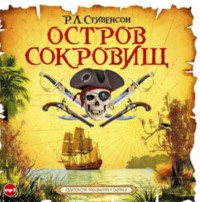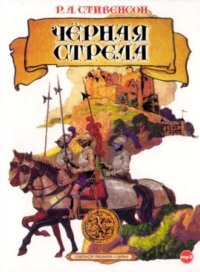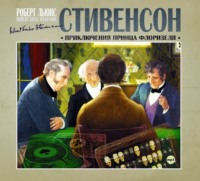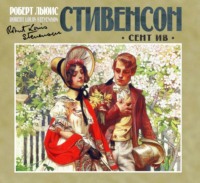Underwoods
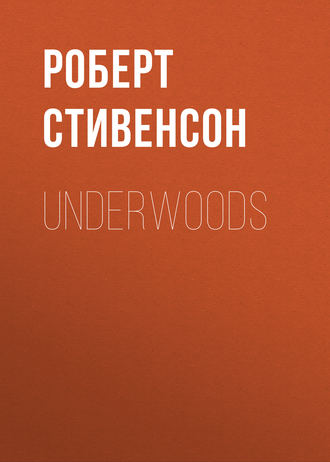 полная версия
полная версияUnderwoods
Жанр: зарубежная поэзиязарубежная классиказарубежная старинная литературастихи и поэзиялитература 19 векасерьезное чтениеcтихи, поэзия
Язык: Английский
Год издания: 2017
Добавлена:
Настройки чтения
Размер шрифта
Высота строк
Поля
VI – THE SPAEWIFE
O, I wad like to ken – to the beggar-wife says I —Why chops are guid to brander and nane sae guid to fry.An’ siller, that’s sae braw to keep, is brawer still to gi’e.– It’s gey an’ easy spierin’, says the beggar-wife to me.O, I wad like to ken – to the beggar-wife says I —Hoo a’ things come to be whaur we find them when we try,The lasses in their claes an’ the fishes in the sea.– It’s gey an’ easy spierin’, says the beggar-wife to me.O, I wad like to ken – to the beggar-wife says I —Why lads are a’ to sell an’ lasses a’ to buy;An’ naebody for dacency but barely twa or three– It’s gey an’ easy spierin’, says the beggar-wife to me.O, I wad like to ken – to the beggar-wife says I —Gin death’s as shüre to men as killin’ is to kye,Why God has filled the yearth sae fu’ o’ tasty things to pree.– It’s gey an’ easy spierin’, says the beggar-wife to me.O, I wad like to ken – to the beggar wife says I —The reason o’ the cause an’ the wherefore o’ the why,Wi’ mony anither riddle brings the tear into my e’e.– It’s gey an’ easy spierin’, says the beggar-wife to me.VII – THE BLAST – 1875
It’s rainin’. Weet’s the gairden sod,Weet the lang roads whaur gangrels plod —A maist unceevil thing o’ God In mid July —If ye’ll just curse the sneckdraw, dod! An’ sae wull I!He’s a braw place in Heev’n, ye ken,An’ lea’s us puir, forjaskit menClamjamfried in the but and ben He ca’s the earth —A wee bit inconvenient den No muckle worth;An’ whiles, at orra times, keeks out,Sees what puir mankind are about;An’ if He can, I’ve little doubt, Upsets their plans;He hates a’ mankind, brainch and root, An’ a’ that’s man’s.An’ whiles, whan they tak heart again,An’ life i’ the sun looks braw an’ plain,Doun comes a jaw o’ droukin’ rain Upon their honours —God sends a spate outower the plain, Or mebbe thun’ers.Lord safe us, life’s an unco thing!Simmer an’ Winter, Yule an’ Spring,The damned, dour-heartit seasons bring A feck o’ trouble.I wadnae try’t to be a king — No, nor for double.But since we’re in it, willy-nilly,We maun be watchfü’, wise an’ skilly,An’ no mind ony ither billy, Lassie nor God.But drink – that’s my best counsel till ’e: Sae tak the nod.VIII – THE COUNTERBLAST – 1886
My bonny man, the warld, it’s true,Was made for neither me nor you;It’s just a place to warstle through, As job confessed o’t;And aye the best that we’ll can do Is mak the best o’t.There’s rowth o’ wrang, I’m free to say:The simmer brunt, the winter blae,The face of earth a’ fyled wi’ clay An’ dour wi’ chuckies,An’ life a rough an’ land’art play For country buckies.An’ food’s anither name for clart;An’ beasts an’ brambles bite an’ scart;An’ what would WE be like, my heart! If bared o’ claethin’?– Aweel, I cannae mend your cart: It’s that or naethin’.A feck o’ folk frae first to lastHave through this queer experience passed;Twa-three, I ken, just damn an’ blast The hale transaction;But twa-three ithers, east an’ wast, Fand satisfaction,Whaur braid the briery muirs expand,A waefü’ an’ a weary land,The bumblebees, a gowden band, Are blithely hingin’;An’ there the canty wanderer fand The laverock singin’.Trout in the burn grow great as herr’n,The simple sheep can find their fair’n’;The wind blaws clean about the cairn Wi’ caller air;The muircock an’ the barefit bairn Are happy there.Sic-like the howes o’ life to some:Green loans whaur they ne’er fash their thumb.But mark the muckle winds that come Soopin’ an’ cool,Or hear the powrin’ burnie drum In the shilfa’s pool.The evil wi’ the guid they tak;They ca’ a gray thing gray, no black;To a steigh brae, a stubborn back Addressin’ daily;An’ up the rude, unbieldy track O’ life, gang gaily.What you would like’s a palace ha’,Or Sinday parlour dink an’ brawWi’ a’ things ordered in a raw By denty leddies.Weel, than, ye cannae hae’t: that’s a’ That to be said is.An’ since at life ye’ve taen the grue,An’ winnae blithely hirsle through,Ye’ve fund the very thing to do — That’s to drink speerit;An’ shüne we’ll hear the last o’ you — An’ blithe to hear it!The shoon ye coft, the life ye lead,Ithers will heir when aince ye’re deid;They’ll heir your tasteless bite o’ breid, An’ find it sappy;They’ll to your dulefü’ house succeed, An’ there be happy.As whan a glum an’ fractious weanHas sat an’ sullened by his laneTill, wi’ a rowstin’ skelp, he’s taen An’ shoo’d to bed —The ither bairns a’ fa’ to play’n’, As gleg’s a gled.IX – THE COUNTERBLAST IRONICAL
It’s strange that God should fash to frame The yearth and lift sae hie,An’ clean forget to explain the same To a gentleman like me.They gutsy, donnered ither folk, Their weird they weel may dree;But why present a pig in a poke To a gentleman like me?They ither folk their parritch eat An’ sup their sugared tea;But the mind is no to be wyled wi’ meat Wi’ a gentleman like me.They ither folk, they court their joes At gloamin’ on the lea;But they’re made of a commoner clay, I suppose, Than a gentleman like me.They ither folk, for richt or wrang, They suffer, bleed, or dee;But a’ thir things are an emp’y sang To a gentleman like me.It’s a different thing that I demand, Tho’ humble as can be —A statement fair in my Maker’s hand To a gentleman like me:A clear account writ fair an’ broad, An’ a plain apologie;Or the deevil a ceevil word to God From a gentleman like me.X – THEIR LAUREATE TO AN ACADEMY CLASS DINNER CLUB
Dear Thamson class, whaure’er I gangIt aye comes ower me wi’ a spang:“Lordsake! they Thamson lads– (deil hang Or else Lord mend them!) —An’ that wanchancy annual sang I ne’er can send them!”Straucht, at the name, a trusty tyke,My conscience girrs ahint the dyke;Straucht on my hinderlands I fyke To find a rhyme t’ ye;Pleased – although mebbe no pleased-like — To gie my time t’ye.“Weel,” an’ says you, wi’ heavin’ breist,“Sae far, sae guid, but what’s the neist?Yearly we gaither to the feast, A’ hopefü’ men—Yearly we skelloch ‘Hang the beast— Nae sang again!’”My lads, an’ what am I to say?Ye shürely ken the Muse’s way:Yestreen, as gleg’s a tyke – the day, Thrawn like a cuddy:Her conduc’, that to her’s a play, Deith to a body.Aft whan I sat an’ made my mane,Aft whan I laboured burd-alaneFishin’ for rhymes an’ findin’ nane, Or nane were fit for ye —Ye judged me cauld’s a chucky stane — No car’n’ a bit for ye!But saw ye ne’er some pingein’ bairnAs weak as a pitaty-par’n’ —Less üsed wi’ guidin’ horse-shoe airn Than steerin’ crowdie —Packed aff his lane, by moss an’ cairn, To ca’ the howdie.Wae’s me, for the puir callant than!He wambles like a poke o’ bran,An’ the lowse rein, as hard’s he can, Pu’s, trem’lin’ handit;Till, blaff! upon his hinderlan’ Behauld him landit.Sic-like – I awn the weary fac’ —Whan on my muse the gate I tak,An’ see her gleed e’e raxin’ back To keek ahint her; —To me, the brig o’ Heev’n gangs black As blackest winter.“Lordsake! we’re aff,” thinks I, “but whaur?On what abhorred an’ whinny scaur,Or whammled in what sea o’ glaur, Will she desert me?An’ will she just disgrace? or waur— Will she no hurt me?”Kittle the quaere! But at leastThe day I’ve backed the fashious beast,While she, wi’ mony a spang an’ reist, Flang heels ower bonnet;An’ a’ triumphant – for your feast, Hae! there’s your sonnet!XI – EMBRO HIE KIRK
The Lord Himsel’ in former daysWaled out the proper tünes for praiseAn’ named the proper kind o’ claes For folk to preach in:Preceese and in the chief o’ ways Important teachin’.He ordered a’ things late and air’;He ordered folk to stand at prayer,(Although I cannae just mind where He gave the warnin’,)An’ pit pomatum on their hair On Sabbath mornin’.The hale o’ life by His commandsWas ordered to a body’s hands;But see! this corpus juris stands By a’ forgotten;An’ God’s religion in a’ lands Is deid an’ rotten.While thus the lave o’ mankind’s lost,O’ Scotland still God maks His boast —Puir Scotland, on whase barren coast A score or twaAuld wives wi’ mutches an’ a hoast Still keep His law.In Scotland, a wheen canty, plain,Douce, kintry-leevin’ folk retainThe Truth – or did so aince – alane Of a’ men leevin’;An’ noo just twa o’ them remain — Just Begg an’ Niven.For noo, unfaithfü’, to the LordAuld Scotland joins the rebel horde;Her human hymn-books on the board She noo displays:An’ Embro Hie Kirk’s been restored In popish ways.O punctum temporis for actionTo a’ o’ the reformin’ faction,If yet, by ony act or paction, Thocht, word, or sermon,This dark an’ damnable transaction Micht yet determine!For see – as Doctor Begg explains —Hoo easy ’t’s düne! a pickle weans,Wha in the Hie Street gaither stanes By his instruction,The uncovenantit, pentit panes Ding to destruction.Up, Niven, or ower late – an’ dashLaigh in the glaur that carnal hash;Let spires and pews wi’ gran’ stramash Thegether fa’;The rumlin’ kist o’ whustles smash In pieces sma’.Noo choose ye out a walie hammer;About the knottit buttress clam’er;Alang the steep roof stoyt an’ stammer, A gate mis-chancy;On the aul’ spire, the bells’ hie cha’mer, Dance your bit dancie.Ding, devel, dunt, destroy, an’ ruin,Wi’ carnal stanes the square bestrewin’,Till your loud chaps frae Kyle to Fruin, Frae Hell to Heeven,Tell the guid wark that baith are doin’ — Baith Begg an’ Niven.XII – THE SCOTSMAN’S RETURN FROM ABROAD
In a letter from Mr. Thomson to Mr. Johnstone.
In mony a foreign pairt I’ve been,An’ mony an unco ferlie seen,Since, Mr. Johnstone, you and ILast walkit upon Cocklerye.Wi’ gleg, observant een, I pass’tBy sea an’ land, through East an’ Wast,And still in ilka age an’ stationSaw naething but abomination.In thir uncovenantit landsThe gangrel Scot uplifts his handsAt lack of a’ sectarian füsh’n,An’ cauld religious destitütion.He rins, puir man, frae place to place,Tries a’ their graceless means o’ grace,Preacher on preacher, kirk on kirk —This yin a stot an’ thon a stirk —A bletherin’ clan, no warth a preen,As bad as Smith of Aiberdeen!At last, across the weary faem,Frae far, outlandish pairts I came.On ilka side o’ me I fandFresh tokens o’ my native land.Wi’ whatna joy I hailed them a’ —The hilltaps standin’ raw by raw,The public house, the Hielan’ birks,And a’ the bonny U.P. kirks!But maistly thee, the bluid o’ Scots,Frae Maidenkirk to John o’ Grots,The king o’ drinks, as I conceive it,Talisker, Isla, or Glenlivet!For after years wi’ a pockmantieFrae Zanzibar to Alicante,In mony a fash and sair afflictionI gie’t as my sincere conviction —Of a’ their foreign tricks an’ pliskies,I maist abominate their whiskies.Nae doot, themsel’s, they ken it weel,An’ wi’ a hash o’ leemon peel,And ice an’ siccan filth, they ettleThe stawsome kind o’ goo to settle;Sic wersh apothecary’s broos wi’As Scotsmen scorn to fyle their moo’s wi’.An’, man, I was a blithe hame-comerWhan first I syndit out my rummer.Ye should hae seen me then, wi’ careThe less important pairts prepare;Syne, weel contentit wi’ it a’,Pour in the sperrits wi’ a jaw!I didnae drink, I didnae speak, —I only snowkit up the reek.I was sae pleased therein to paidle,I sat an’ plowtered wi’ my ladle.An’ blithe was I, the morrow’s morn,To daunder through the stookit corn,And after a’ my strange mishanters,Sit doun amang my ain dissenters.An’, man, it was a joy to meThe pu’pit an’ the pews to see,The pennies dirlin’ in the plate,The elders lookin’ on in state;An’ ’mang the first, as it befell,Wha should I see, sir, but yoursel’I was, and I will no deny it,At the first gliff a hantle tryitTo see yoursel’ in sic a station —It seemed a doubtfü’ dispensation.The feelin’ was a mere digression;For shüne I understood the session,An’ mindin’ Aiken an’ M‘Neil,I wondered they had düne sae weel.I saw I had mysel’ to blame;For had I but remained at hame,Aiblins – though no ava’ deservin’ ’t —They micht hae named your humble servant.The kirk was filled, the door was steeked;Up to the pu’pit ance I keeked;I was mair pleased than I can tell —It was the minister himsel’!Proud, proud was I to see his face,After sae lang awa’ frae grace.Pleased as I was, I’m no denyin’Some maitters were not edifyin’;For first I fand – an’ here was news! —Mere hymn-books cockin’ in the pews —A humanised abomination,Unfit for ony congregation.Syne, while I still was on the tenter,I scunnered at the new prezentor;I thocht him gesterin’ an’ cauld —A sair declension frae the auld.Syne, as though a’ the faith was wreckit,The prayer was not what I’d exspeckit.Himsel’, as it appeared to me,Was no the man he üsed to be.But just as I was growin’ vextHe waled a maist judeecious text,An’, launchin’ into his prelections,Swoopt, wi’ a skirl, on a’ defections.O what a gale was on my speeritTo hear the p’ints o’ doctrine clearit,And a’ the horrors o’ damnationSet furth wi’ faithfü’ ministration!Nae shauchlin’ testimony here —We were a’ damned, an’ that was clear,I owned, wi’ gratitude an’ wonder,He was a pleisure to sit under.XIII
Late in the nicht in bed I lay,The winds were at their weary play,An’ tirlin’ wa’s an’ skirlin’ wae Through Heev’n they battered; —On-ding o’ hail, on-blaff o’ spray, The tempest blattered.The masoned house it dinled through;It dung the ship, it cowped the coo’.The rankit aiks it overthrew, Had braved a’ weathers;The strang sea-gleds it took an’ blew Awa’ like feathers.The thrawes o’ fear on a’ were shed,An’ the hair rose, an’ slumber fled,An’ lichts were lit an’ prayers were said Through a’ the kintry;An’ the cauld terror clum in bed Wi’ a’ an’ sindry.To hear in the pit-mirk on hieThe brangled collieshangie flie,The warl’, they thocht, wi’ land an’ sea, Itsel’ wad cowpit;An’ for auld airn, the smashed debris By God be rowpit.Meanwhile frae far Aldeboran,To folks wi’ talescopes in han’,O’ ships that cowpit, winds that ran, Nae sign was seen,But the wee warl’ in sunshine span As bricht’s a preen.I, tae, by God’s especial grace,Dwall denty in a bieldy place,Wi’ hosened feet, wi’ shaven face, Wi’ dacent mainners:A grand example to the race O’ tautit sinners!The wind may blaw, the heathen rage,The deil may start on the rampage; —The sick in bed, the thief in cage — What’s a’ to me?Cosh in my house, a sober sage, I sit an’ see.An’ whiles the bluid spangs to my bree,To lie sae saft, to live sae free,While better men maun do an’ die In unco places.“Whaur’s God?” I cry, an’ “Whae is me To hae sic graces?”I mind the fecht the sailors keep,But fire or can’le, rest or sleep,In darkness an’ the muckle deep; An’ mind besideThe herd that on the hills o’ sheep Has wandered wide.I mind me on the hoastin’ weans —The penny joes on causey stanes —The auld folk wi’ the crazy banes, Baith auld an’ puir,That aye maun thole the winds an’ rains An’ labour sair.An’ whiles I’m kind o’ pleased a blink,An’ kind o’ fleyed forby, to think,For a’ my rowth o’ meat an’ drink An’ waste o’ crumb,I’ll mebbe have to thole wi’ skink In Kingdom Come.For God whan jowes the Judgment bell,Wi’ His ain Hand, His Leevin’ Sel’,Sall ryve the guid (as Prophets tell) Frae them that had it;And in the reamin’ pat o’ Hell, The rich be scaddit.O Lord, if this indeed be sae,Let daw that sair an’ happy day!Again’ the warl’, grawn auld an’ gray, Up wi’ your aixe!An’ let the puir enjoy their play — I’ll thole my paiks.XIV – MY CONSCIENCE!
Of a’ the ills that flesh can fear,The loss o’ frien’s, the lack o’ gear,A yowlin’ tyke, a glandered mear, A lassie’s nonsense —There’s just ae thing I cannae bear, An’ that’s my conscience.Whan day (an’ a’ excüse) has gane,An’ wark is düne, and duty’s plain,An’ to my chalmer a’ my lane I creep apairt,My conscience! hoo the yammerin’ pain Stends to my heart!A’ day wi’ various ends in viewThe hairsts o’ time I had to pu’,An’ made a hash wad staw a soo, Let be a man! —My conscience! whan my han’s were fu’, Whaur were ye than?An’ there were a’ the lures o’ life,There pleesure skirlin’ on the fife,There anger, wi’ the hotchin’ knife Ground shairp in Hell —My conscience! – you that’s like a wife! — Whaur was yoursel’?I ken it fine: just waitin’ here,To gar the evil waur appear,To clart the guid, confüse the clear, Mis-ca’ the great,My conscience! an’ to raise a steer Whan a’s ower late.Sic-like, some tyke grawn auld and blind,Whan thieves brok’ through the gear to p’ind,Has lain his dozened length an’ grinned At the disaster;An’ the morn’s mornin’, wud’s the wind, Yokes on his master.XV – TO DOCTOR JOHN BROWN
(Whan the dear doctor, dear to a’,Was still amang us here belaw,I set my pipes his praise to blaw Wi’ a’ my speerit;But noo, Dear Doctor! he’s awa’, An’ ne’er can hear it.)By Lyne and Tyne, by Thames and Tees,By a’ the various river-Dee’s,In Mars and Manors ’yont the seas Or here at hame,Whaure’er there’s kindly folk to please, They ken your name.They ken your name, they ken your tyke,They ken the honey from your byke;But mebbe after a’ your fyke, (The trüth to tell)It’s just your honest Rab they like, An’ no yoursel’.As at the gowff, some canny play’rShould tee a common ba’ wi’ care —Should flourish and deleever fair His souple shintie —An’ the ba’ rise into the air, A leevin’ lintie:Sae in the game we writers play,There comes to some a bonny day,When a dear ferlie shall repay Their years o’ strife,An’ like your Rab, their things o’ clay, Spreid wings o’ life.Ye scarce deserved it, I’m afraid —You that had never learned the trade,But just some idle mornin’ strayed Into the schüle,An’ picked the fiddle up an’ played Like Neil himsel’.Your e’e was gleg, your fingers dink;Ye didnae fash yoursel’ to think,But wove, as fast as puss can link, Your denty wab: —Ye stapped your pen into the ink, An’ there was Rab!Sinsyne, whaure’er your fortune layBy dowie den, by canty brae,Simmer an’ winter, nicht an’ day, Rab was aye wi’ ye;An’ a’ the folk on a’ the way Were blithe to see ye.O sir, the gods are kind indeed,An’ hauld ye for an honoured heid,That for a wee bit clarkit screed Sae weel reward ye,An’ lend – puir Rabbie bein’ deid — His ghaist to guard ye.For though, whaure’er yoursel’ may be,We’ve just to turn an’ glisk a wee,An’ Rab at heel we’re shüre to see Wi’ gladsome caper: —The bogle of a bogle, he — A ghaist o’ paper!And as the auld-farrand hero seesIn Hell a bogle Hercules,Pit there the lesser deid to please, While he himsel’Dwalls wi’ the muckle gods at ease Far raised frae hell:Sae the true Rabbie far has ganeOn kindlier business o’ his ainWi’ aulder frien’s; an’ his breist-bane An’ stumpie tailie,He birstles at a new hearth stane By James and Ailie.XVI
It’s an owercome sooth for age an’ youth And it brooks wi’ nae denial,That the dearest friends are the auldest friends And the young are just on trial.There’s a rival bauld wi’ young an’ auld And it’s him that has bereft me;For the sürest friends are the auldest friends And the maist o’ mines hae left me.There are kind hearts still, for friends to fill And fools to take and break them;But the nearest friends are the auldest friends And the grave’s the place to seek them.1
Life on the Lagoons, by H. F. Brown, originally burned in the fire at Messrs. Kegan Paul, Trench. and Co.’s.
2
From Travels with a Donkey.
3
From Travels with a Donkey.


